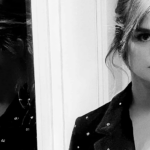Table of Contents

Photo: ‘Deadly Illusions’/Netflix
The thriller film genre is defined as “giving viewers heightened feelings of suspense, excitement, surprise, anticipation and anxiety.” Many times, thrillers use a character’s anxiety or deteriorating mental health as a means of creating tension and plot in the film. In the new Netflix film ‘Deadly Illusions’, writer/director Anna Elizabeth James does exactly that: makes mental health seem like an illusion; something that can be brushed under the rug once it no longer matters to the main character.
Related article: The Complete List of 2021 Oscar Nominations – Celebrations, Surprises & Snubs | The Show Must Go On
Related article: Everything We Know About Olivia Wilde’s ‘Don’t Worry Darling’: Florence Pugh, Harry Styles, Chris Pine, Gemma Chan
The Premise
‘Deadly Illusions’ follows best-selling thriller novelist Mary (Kristin Davis) who has just agreed to write an additional novel for her book publisher while dealing with financial problems with her family. As a way to focus more on her writing and getting over her writer’s block, Mary and her husband (Dermot Mulroney) decide to hire a nanny to watch her kids. Upon getting to know their nanny, Grace (Greer Grammer), Mary begins to have trouble telling the difference between her real life and her novel.
‘Deadly Illusions’ Is A Dangerous Portrayal Of Mental Health
One of the most consistent things that ‘Deadly Illusions’ does is question the mental health condition of Mary the further into planning her novel she gets. She thinks she is growing closer to Grace, from taking her shopping for lingerie to going on a private picnic with her, but the reactions of those around her make her question whether she is actually experiencing those things or if she’s dreaming them. After having what she thought was a real sexual encounter with Grace she begins to truly spiral and question whether she has a grip on reality or not as does her husband, best friend Elaine (Shanola Hampton), and the police at one point, even asking her what kind of psychosis she has been diagnosed with.
Subscribe to Hollywood Insider’s YouTube Channel, by clicking here.
By the end of the film the audience finds out what really was going on and it ultimately leads to all of the problems Mary thought she was having simply disappearing as if they never existed. This is a problematic narrative because it diminishes the importance of mental health. Having a narrative that stigmatizes mental the way ‘Deadly Illusions’ does is highly problematic because it essentially says that mental health problems are something that will simply “go away” with time and that is not at all true.
According to the American Psychiatric Association, Mary built up a self-stigma, which they describe as “the negative attitudes, including internalized shame, that people with mental illness have about their own condition.” She avoided telling anyone what is going on out of fear of shame and them not believing her; she feared people thinking she was crazy. Internalization prevents an individual from being able to get proper help because they do not want others to know what they are going through and do not see a solution to their problems.
Related article: The Power of Positivity: Ikorodu Bois + Chris Hemsworth + Russo Brothers + Sam Hargrave
Limited Time Offer – FREE Subscription to Hollywood Insider
The Mental Health Discussion We Should Be Having On Screen
Films such as ‘Deadly Illusions’ promote the stigmatization of mental illness when we really need more films promoting positive actions and behaviors surrounding mental health. One of those ways is to actually follow through with the storylines using mental illness as a key component. It was clear during ‘Deadly Illusions’ that Mary did indeed have some kind of mental illness that went unaddressed as the film ended; it seemingly just disappeared. Especially after what she went through in the film there is no way there would not be some kind of therapy she would be in to address her traumas and the effects that writing her novel seemed to have on her. Had they included some scene or discussion of treatment, it could have shown and helped normalized mental illness treatment.
According to the American Psychiatric Association, one of the best ways to reduce mental illness stigma is by interacting or hearing from people who have been dealing with long-term mental illness and treatment. They report that three in four teens go online to find personal anecdotes from people who have suffered from mental illness, specifically depression, in the past and that “90 percent of teens and young adults experiencing symptoms of depression are researching mental health issues online and most are accessing other people’s health stories through blogs, podcasts, and videos.” With that information, it is even more important to make sure that media, especially movies and television, make an effort to portray stories of mental illness and treatment that highlights the good that can come from discussing it and getting treatment.
Related article: Hollywood Insider’s CEO Pritan Ambroase: “The Importance of Venice Film Festival as the Protector of Cinema”
Related article: The Masters of Cinema Archives: Hollywood Insider Pays Tribute to ‘La Vie En Rose’, Exclusive Interview with Director Olivier Dahan
So many people get their understanding of mental illness and mental health care from film and television which means there needs to be more thought put into how these are shown on screen. The International Society for the Study of Trauma and Dissociation issued this statement after the release of M. Night Shyamalan’s ‘Split’, a film which uses the same mental illness as ‘Deadly Illusions’: “depicting individuals with this, or any other mental health disorders, does a disservice to his artistic ability and to the over 20 percent of the population who, at some time or another, struggle with some form of mental illness.
It acts to further marginalize those who already struggle on a daily basis with the weight of stigma.” If we expect people to be open to getting mental health help we need to stop associating it on screen with evil and negative behavior; we need to make sure it is shown as being a normal thing to have mental illness and that getting help is a good thing, and that is something ‘Deadly Illusions’ definitely does not show.
Cast: Kristin Davis, Dermot Mulroney, Shanola Hampton, Greer Grammer, Melissa Chambers
Cinematography: Mike McMillin | Editing: Brian Scofield
Producers: David Fleming, Tim Bien, Trina Jonas, Cailey Tuers, Shanola Hampton, Rami Rank, Kristopher Wynne, Brandon Henry Rodriguez, Greer Grammer, Lauren Elizabeth Hood, Anna, Elizabeth James, Emily Rose Ballard, Julie Gause, Hayden Bilson, Chelsea Gilroy
Writer and Director: Anna Elizabeth James
Click here to read Hollywood Insider’s CEO Pritan Ambroase’s love letter to Black Lives Matter, in which he tackles more than just police reform, press freedom and more – click here.
An excerpt from the love letter: Hollywood Insider’s CEO/editor-in-chief Pritan Ambroase affirms, “Hollywood Insider fully supports the much-needed Black Lives Matter movement. We are actively, physically and digitally a part of this global movement. We will continue reporting on this major issue of police brutality and legal murders of Black people to hold the system accountable. We will continue reporting on this major issue with kindness and respect to all Black people, as each and every one of them are seen and heard. Just a reminder, that the Black Lives Matter movement is about more than just police brutality and extends into banking, housing, education, medical, infrastructure, etc. We have the space and time for all your stories. We believe in peaceful/non-violent protests and I would like to request the rest of media to focus on 95% of the protests that are peaceful and working effectively with positive changes happening daily. Media has a responsibility to better the world and Hollywood Insider will continue to do so.”
Ways to support Black Lives Matter Movement to end systemic racism
More Interesting Stories From Hollywood Insider
– Want GUARANTEED SUCCESS? Remove these ten words from your vocabulary| Transform your life INSTANTLY
– Compilation: All James Bond 007 Opening Sequences From 1962 Sean Connery to Daniel Craig
– Do you know the hidden messages in ‘Call Me By Your Name’? Find out behind the scenes facts in the full commentary and In-depth analysis of the cinematic masterpiece
– A Tribute To The Academy Awards: All Best Actor/Actress Speeches From The Beginning Of Oscars 1929-2019 | From Rami Malek, Leonardo DiCaprio To Denzel Washington, Halle Berry & Beyond | From Olivia Colman, Meryl Streep To Bette Davis & Beyond
– In the 32nd Year Of His Career, Keanu Reeves’ Face Continues To Reign After Launching Movies Earning Over $4.3 Billion In Total – “John Wick”, “Toy Story 4”, “Matrix”, And Many More
deadly illusions, deadly illusions, deadly illusions, deadly illusions, deadly illusions, deadly illusions, deadly illusions, deadly illusions, deadly illusions, deadly illusions, deadly illusions, deadly illusions, deadly illusions, deadly illusions, deadly illusions, deadly illusions, deadly illusions, deadly illusions, deadly illusions, deadly illusions, deadly illusions

Caroline Schneider has always had a fascination with television and film. She revels in analyzing and writing about her favorite television shows and movies while looking for the greater meaning within Cinema. Finding the elements that really make people think about deeper messages and trends – which is exactly what Hollywood Insider continues to do.








